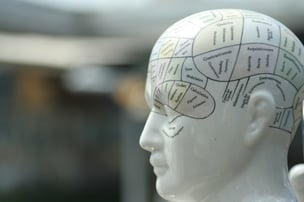 “I would like to make a case for raising the importance of mental math as a major component in students’ tool kits of mathematical knowledge. Mental math is often associated with the ability to do computations quickly, but in its broadest sense, mental math also involves conceptual understanding and problem solving.” - Cathy Seeley, National Council of Teachers of Mathematics President 2004-2006
“I would like to make a case for raising the importance of mental math as a major component in students’ tool kits of mathematical knowledge. Mental math is often associated with the ability to do computations quickly, but in its broadest sense, mental math also involves conceptual understanding and problem solving.” - Cathy Seeley, National Council of Teachers of Mathematics President 2004-2006
Improving Academic PerfORMANCE
Learn how to improve yourself through targeted learning and improved study skills.
The Indirect Effects of Independent Reading
“The amount of free reading done outside of school has consistently been found to relate to growth in vocabulary, reading comprehension, verbal fluency, and general information. Students who read independently become better readers, score higher on achievement tests in all subject areas, and have greater content knowledge than those who do not. - Research Journal of the American Association of School Librarians
Calm Your Mind: Understanding & Managing Stress
 “A bit of stress in short doses is useful in improving our memory and enhancing performance. However, too much, too regularly, is extremely damaging to our mental and physical well-being.”
“A bit of stress in short doses is useful in improving our memory and enhancing performance. However, too much, too regularly, is extremely damaging to our mental and physical well-being.”
From https://www.headspace.com/science/stress, a web-site founded by globally recognized mindfulness and meditation expert Andy Puddicomb
Just because you have no major or minor diagnosed mental health disorder, doesn’t mean you have a completely healthy mind. If school, work, sports, orsocial situations tend to make you nervous and stressed, your performance suffers.
Fuel Your Mind Through Exercise, Nutrition and Sleep

It turns out that there’s lots of documented scientific evidence that the more you exercise, the better you eat, and the more you sleep (within reason), the better your brain works (i.e., you can reason more clearly, recall information faster, solve problems faster, etc.). It naturally follows that exercise, nutrition, and sleep are critically important, though perhaps indirect, elements of improving children's academic performance.
On the one hand, this may seem a little obvious. But one of the more interesting pieces of advice about critical thinking and problem solving ever given to me was that the best insights are those that seem really, really obvious once they are realized. If you really didn’t know it before for sure, but now you do with certainty, you’ve realized something important. Still, I find that sometimes an idea seems so intuitively obvious that it isn’t interesting enough to grab most people’s attention, or perhaps because it’s obvious, it just doesn’t seem like it can be that important.
How to Build the Right Skills Deliberately with Practice
 “It’s not that I’m so smart. I just stick with the questions longer.” - Albert Einstein
“It’s not that I’m so smart. I just stick with the questions longer.” - Albert Einstein
How to Adopt a Growth Oriented, Ownership Mindset

Most people tend to have one of two mindsets: fixed or growth. Those with a growth mindset believe they can always improve and change their personality or level of intelligence through feedback and hard work. They believe, accurately, that the brain is a muscle that can be built up over time. Those with a fixed mindset believe your personality and intelligence is more or less given to you at birth, and you can only tinker around the edges. You want to adopt a growth mindset.
Developing a Growth Mindset
Why is the growth mindset important? First, because the research suggests it’s true, and second, because adopting this mindset leaves to whole host of behaviors that have been shown to lead to academic and other types of success, most notably “grit” and the willingness to stick with things when the going gets tough. People with a fixed mindset tend to think their abilities, personalities, and intelligence is given at birth, and can’t be changed. They may tend to avoid activities at which they fear they’ll fail, since this will expose a lack of ability which of course, can’t be changed. This creates a truly unfortunate cycle.
Because the student believes they simply, for example, aren’t good at math, but recognizes that it would be nice if they were good at math, they avoid situations in which their poor math ability will be exposed. They make the choice to avoid raising their hand, for fear of looking dumb. So, they don’t ask questions to clarify their understanding in class. They may even avoid doing their homework, since it’s somehow easier mentally to do poorly because you didn’t study than to try your best and fail, thus confirming your belief that you may just not smart. Ultimately, and over time, a student with a fixed mindset starts to try far less hard, do much less homework, falling farther and farther behind, until the evidence seems to confirm that yes, other people “have it” and they don’t when it comes to math (or, insert any other common skill).
People with a growth mindset believe that abilities and talents are built up over time through hard work, persistence, feedback, and ultimately learning. They’ll ask a question in class in the honest pursuit of feedback and learning, without being too worried about sounding dumb. They have no fear of being exposed as lacking math skills, because they believe they can and will just build up their math skills if they lack them today.
